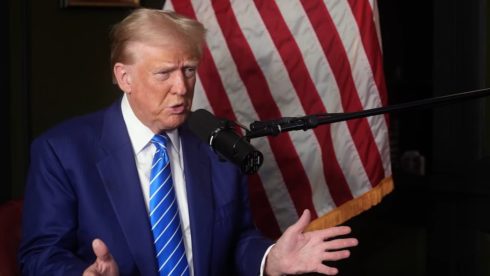In a new court filing, Special Counsel Jack Smith has alleged that former U.S. President Donald Trump “resorted to crimes” in his attempt to overturn the 2020 election results. Prosecutors argue that Donald Trump’s actions went beyond his official capacity as president and entered the realm of criminality, marking a key moment in the case against him.
The filing, made public on Wednesday, contends that Donald Trump is not protected by a Supreme Court ruling that grants immunity for official acts while in office. It comes in the final stretch before Trump faces his Democratic opponent, Kamala Harris, in next month’s election. Prosecutors are pushing this case forward as potentially their last opportunity to present their arguments before voters head to the polls.
Legal Immunity Challenged by Prosecutors
Donald Trump’s legal team has argued that the former president is immune from prosecution based on a Supreme Court decision issued earlier this year. This ruling provided broad protections for actions taken by a sitting president in an official capacity. However, prosecutors assert that some of Trump’s activities to overturn the election were done in his capacity as a private citizen, not as president.
The court filing from Smith’s team emphasizes this distinction, claiming Trump’s actions—particularly those linked to his efforts to dispute the results—were tied to his re-election campaign and not his duties as president. Prosecutors assert that these alleged “private crimes” are not covered by the immunity shield, and Trump should stand trial like any other citizen. The case, which has been delayed multiple times, is seen as pivotal for the future of Trump’s political career.
Mike Pence’s Role and Trump’s Alleged Disregard for Capitol Riots
The court filing also sheds light on several critical moments involving former Vice President Mike Pence. According to prosecutors, Pence repeatedly questioned Trump’s claims of voter fraud, attempting to convince him to accept his loss in the 2020 election. However, Trump refused to relent, even as Pence distanced himself from these efforts.
In one particularly shocking allegation, the filing describes how Donald Trump reacted with indifference when he learned that rioters had stormed the U.S. Capitol on January 6, 2021. When told that his vice president had been rushed to safety, Trump allegedly responded with a dismissive “So what?” This indifference toward Pence, who was targeted by rioters chanting “Hang Mike Pence,” further underscores the rift between the two men after the election. Pence later broke with Trump publicly, condemning the violence and refusing to obstruct the certification of President Joe Biden’s victory.
New Evidence Highlights Trump’s Alleged Election Interference Strategy
The court document provides new evidence outlining Donald Trump’s alleged long-standing plan to declare victory in the 2020 election regardless of the outcome. Prosecutors argue that Donald Trump had, from the outset, laid the groundwork to challenge the results, a strategy that was in place even before Election Day. His campaign, according to the filing, sought to undermine the legitimacy of mail-in ballots, which surged during the pandemic, particularly in Democratic strongholds like Detroit.
One striking detail involves a Trump campaign operative who, upon seeing a batch of mail-in ballots heavily favoring Biden, instructed a colleague to “find a reason” to question their validity. This, prosecutors claim, was part of a broader scheme to provide Trump with “options to file litigation” in key battleground states. Additionally, Trump’s allies, including attorney Rudy Giuliani, are alleged to have capitalized on the chaos of January 6 by lobbying senators to delay the certification process.
Despite these allegations, Donald Trump remains defiant. On his Truth Social platform, he labeled the filing as a politically motivated “hit job” and predicted his “complete victory” in the case. While a trial date is yet to be set, the evidence presented in this latest filing has clarified the path prosecutors will take if the case proceeds to court.














